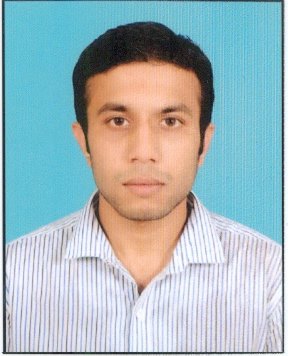About Me

I am a PhD Candidate in the School of Computer Science, Georgia Tech. I work in the Embedded Pervasive Laboratory and my supervisor is Dr. Umakishore Ramachandran.
My research interests are broadly in Edge Computing, Cloud Computing, and Distributed Systems. In my PhD thesis research, I have focused on building systems support for emerging latency-sensitive applications - such as autonomous drone swarms, AR and collaborative perception for autonomous driving - so that they can operate efficiently on a geo-distributed Edge infrastructure. As part of this research exploration, I have worked with multiple state-of-the-art platform services, such as Apache Pulsar, Cassandra, Kubernetes and OpenFaas.
Please find a link to my resume here. Harshit Gupta - Resume
The best way to reach me is via email: harshitg@gatech.edu
Active Research Projects
Mechanisms for Control-Plane Policies to support Geo-Distributed Situation-Awareness Applications.
Situation-awareness applications, e.g., UAV Swarm Coordination, Collaborative Perception for Autonomous Driving, etc. require their clients to be able to access compute and data entities with low latency so that they can react to changes in their immediate environment in real-time, this necessitating edge computing. For ease of application development, developers typically rely on platform services such as application orchestrators (e.g., Kubernetes), publish-subscribe systems (e.g., Apache Pulsar), etc. However, existing popular offerings of such platform services are limited to datacenters, and edge-based offerings are insufficient. In this project, I carry out a design space exploration of mechanisms that provide crucial information to the control-plane of platform services - such that they can operate efficiently on the geo-distributed edge infrastructure.Scheduling Inference Requests on a Cluster of Lightweight Edge Devices.
Resource-scarcity and need for multi-tenancy are two defining characteristics of edge computing infrastructures. Oftentimes, a cluster of lightweight edge devices such as Raspberry PIs need to serve analytics pipelines for a number of sensor streams, such as cameras. In this project, we analyze how to schedule the inference requests of multiple camera streams over a shared set of edge devices. The objectives are to achieve high resource utilization, while ensuring that the latency requirements of each request is met.Utilization Estimation for Black-box Network Functions.
Network Function Virtualization (NFV) often involves deploying and managing closed-source VM images of a network function that uses poll-mode I/O for packet processing. Continuous polling for I/O and the closed-source nature of the application makes utilization estimation extremely challenging. In this project, we leverage the correlation between CPU hardware (PMU) events and utilization of network functions to build a utilization estimator. We showcase the utility of such a utilization estimator by implementing an end-to-end power supervisor that uses DVFS frequency-scaling to minimize VNF power usage. We have also identified other potential use-cases for utilization estimation, including workload balancing and dynamic scaling.Publications
Conference Papers
-
ePulsar: Control Plane for Publish-Subscribe Systems on Geo-Distributed Edge Infrastructure.
Harshit Gupta, Tyler C. Landle and Umakishore Ramachandran.
SEC 2021 (6th ACM/IEEE Symposium on Edge Computing)
Paper Slides -
OneEdge: An Efficient Control Plane for Geo-Distributed Infrastructures.
Harshit Gupta, Enrique Saurez and Umakishore Ramachandran.
SoCC 2021 (12th ACM Symposium on Cloud Computing)
Paper Slides -
From Back-of-the-Envelope to Informed Estimation of Edge Computing Benefits in Minutes Using Castnet.
Harshit Daga, Hobin Yoon, Ketan Bhardwaj, Harshit Gupta and Ada Gavrilovska.
ICFC 2019 (IEEE International Conference on Fog Computing)
Paper Slides -
Elevating the Edge to Be a Peer of the Cloud.
Umakishore Ramachandran, Harshit Gupta, Adam Hall, Enrique Saurez and Zhuangdi Xu.
CLOUD 2019 (IEEE International Conference on Cloud Computing)
Paper Slides -
Power Management of Polled Network IO using Hardware Performance Counters.
Harshit Gupta, Abhigyan Sharma and Umakishore Ramachandran.
HotCloud 2019 (USENIX Workshop on Hot Topics in Cloud Computing)
Paper Slides -
FogStore: A Geo-Distributed Key-Value Store Guaranteeing Low Latency for Strongly Consistent Access.
Harshit Gupta and Umakishore Ramachandran.
DEBS 2018 (12th ACM International Conference on Distributed and Event-based Systems)
Paper Slides -
STTR: A System for Tracking All Vehicles All the Time At the Edge of the Network.
Zhuangdi Xu, Harshit Gupta and Umakishore Ramachandran.
DEBS 2018 (12th ACM International Conference on Distributed and Event-based Systems)
Paper Slides
Journal Papers
- iFogSim: A Toolkit for Modeling and Simulation of Resource Management Techniques in Internet of Things, Edge and Fog Computing Environments
Harshit Gupta, Amir Vahid Dastjerdi, Soumya K Ghosh and Rajkumar Buyya.
Journal of Software : Practice and Experience (Volume 7, Issue 9)
Paper
Book chapters
-
Fog Computing in 5G Networks: Application Perspective and Use Cases.
Harshit Gupta, Sandip Chakraborty, Soumya K. Ghosh and Rajkumar Buyya.
Cloud and Fog Computing in 5G Mobile Networks (IET) edited by Evangelos Markakis, George Mastorakis, Constandinos Mavromoustakis, and Evangelos Pallis.
-
Fog Computing for the Internet of Things.
Amir V. Dastjerdi, Harshit Gupta, Rodrigo N. Calheiros, Soumya K. Ghosh and Rajkumar Buyya.
Internet of Things: Principles and Paradigms (Morgan Kaufmann) edited by Rajkumar Buyya and Amir V. Dastjerdi.
Teaching
CS 8803: Systems Issues in Cloud Computing (Spring 2021)
This course covers various 4 main areas in cloud computing - distributed systems, Software Defined Networking (SDN), Network Function Virtualization (NFV) and cloud applications. The goal is to acquaint students with the challenges faced by applications and system developers in the Cloud.- I was responsible for designing the content and assignment for the module on NFV.
CS 7210: Distributed Computing(Spring 2020)
This course covers the fundamental principles of distributed computing, that underly wide spectrum of system implementations, ranging from the Chord Distributed Hash Tables in the past to to Remote Direct Memory Access at present.- I was responsible for testing and incorporating an assignment on formal verification of distributed protocols using DS Labs.